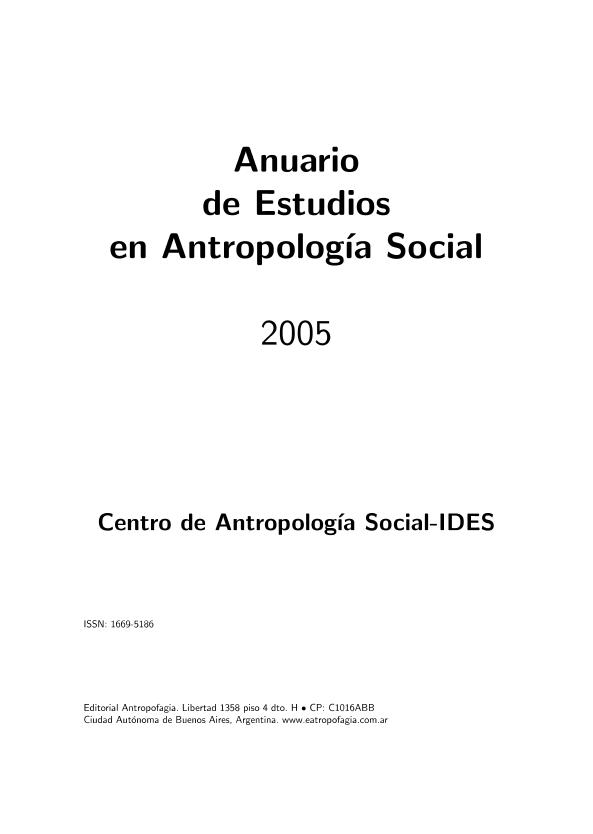Artículo
Luego de las jornadas de Diciembre de 2001 ciertas acciones de protesta vieron reconfiguradas sus modalidades tanto en relación a los modos en que habían sido desplegadas hasta entonces como en relación a los espacios en los que se desarrollaban. En ese contexto la familia Stein –víctima del “corralito” bancario– decidió a modo de protesta “veranear” en el hall de una sucursal bancaria. Vestidos con trajes de baño, ojotas y gafas de sol instalaron allí dos sillas de playa, baldecitos y caracoles y exhibieron un cartel en el que podía leerse: Este banco se quedó con el futuro de mis hijos. Devuélvanselo. Con el objetivo de recuperar ciertos elementos explicativos que den cuenta de esta “situación social” señalo que esta familia opone la moralidad familiar a otras que le resultan divergentes como las de los bancos y la política. A su vez entiendo que la relación establecida entre el esfuerzo de los padres y el futuro de los hijos está en la base de la presentación del ahorro como un valor moral. El dinero es integrado al reclamo de los Stein no cómo un fin en sí mismo sino como un medio atado a los valores morales de la meritocracia y la familia, valores que han caracterizado la participación de la clase media argentina en la narrativa histórica del ascenso social. After the days of December 2001 -when part of the population of Buenos Aires city and some provinces demonstrated against De la R´ua’s government - the configuration of certain actions of protest changed not only in relation to the way in which they had been staged until then, but also in relation to the spaces in which they were carried out. In this context the Steins - a family who fell victim to the banking “corralito”- decided to spend their holiday in the branch of the bank, as a way of protest. Dressed in swimsuits, flip-flops and sunglasses they placed there two folding chairs, little buckets and sea shells, and they exhibited a sign where the following could be read: This bank has kept my children’s future. Give it back to them. With the objective of recovering certain explanatory elements which can account for this “social situation”, I point out that this family opposes the familiar morality to others that they find divergent such as those of the banks and politics. In addition, I understand that the established relation between the effort made by the parents and the future of their children is on the base of taking saving as a moral value. Money is included in the demand of the Steins not as an end in itself but as a means attached to the moral values of meritocracy and family, values which have characterized the participation of Argentine middle class in the historical narrative of social promotion.
"Ahorristas" de vacaciones: de Villa Gessell al HSBC: Moralidades, familia y nación
Fecha de publicación:
12/2005
Editorial:
Instituto de Desarrollo Económico y Social. Centro de Antropología Social
Revista:
Anuario del Centro de Antropología Social
ISSN:
1669-5186
Idioma:
Español
Tipo de recurso:
Artículo publicado
Clasificación temática:
Resumen
Palabras clave:
Ahorristas Estafados
,
Moralidades
,
Familia
,
Nación
,
Clase Media
,
Meritocracia
,
Ahorro
Archivos asociados
Licencia
Identificadores
Colecciones
Articulos(SEDE CENTRAL)
Articulos de SEDE CENTRAL
Articulos de SEDE CENTRAL
Citación
Zenobi, Diego Sebastian; "Ahorristas" de vacaciones: de Villa Gessell al HSBC: Moralidades, familia y nación; Instituto de Desarrollo Económico y Social. Centro de Antropología Social; Anuario del Centro de Antropología Social; 12-2005; 217-234
Compartir




